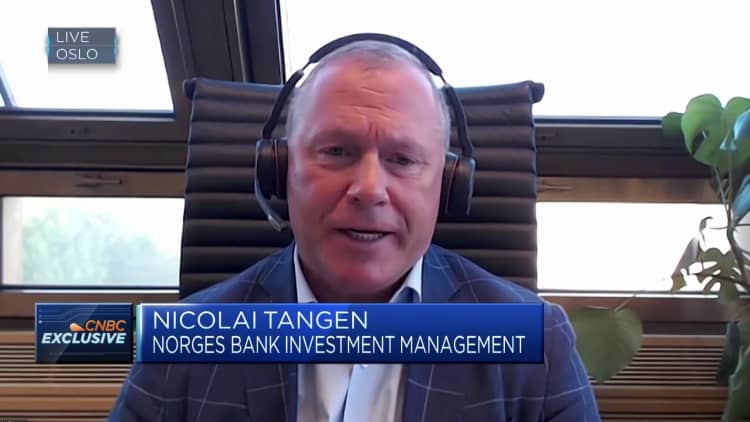A Biden administration ESG rule for workplace retirement plans survived a recent court challenge by 26 red states.
But the most significant victory for the White House likely isn't in upholding the legal substance of its rule; instead, it's in the messaging around use of ESG investment funds in 401(k) plans, according to retirement experts.
More from Personal Finance:
Corporate pensions are at healthiest in more than a decade
This account is like an 'extra strength' Roth IRA
46% of 401(k) investors are clueless about investments
'Tonal shift' is the biggest win
ESG investing — also known as impact or sustainable investing — allocates money according to environmental, social and governance principles. Climate-focused mutual funds, for example, might seek to invest in green energy technology or avoid fossil fuel companies.
The Biden administration rule — which took effect Jan. 30 — was one facet of a White House effort to address climate change. President Biden also signed the Inflation Reduction Act into law, the biggest piece of climate legislation in U.S. history.
Biden's ESG rule replaced a regulation issued by the Trump administration. The latter was expected to have a chilling effect on ESG uptake in 401(k) plans at a time when adoption was already relatively scarce.
Just 4.2% of 401(k) plans offered an ESG fund to workers in 2021, according to the Plan Sponsor Council of America, a trade group. They hold about a hundredth of 1% of 401(k) assets, PSCA said.

Republican state attorneys general sued the U.S. Department of Labor, which promulgated the rule, claiming it violated the Employee Retirement Income Security Act of 1974 and the Administrative Procedure Act.
A Trump-appointed federal judge in the Northern District of Texas dismissed that argument.
Of course, the decision may be appealed. For now, the ruling preserves the Biden administration's positive vibes about ESG investing, experts said.
"In an area where perception is reality, I do think the tonal shift is a significant thing," said Andrew Oringer, a retirement law expert and partner at The Wagner Law Group.
"If you're a fiduciary who wants to take into account ESG, and you feel the Department of Labor isn't against you, maybe you're more willing to do it," Oringer added. "Whereas if you're a fiduciary who wants to take it into account and you feel the DOL is gunning for you, maybe you're not as willing to proceed."
(Fiduciary is a legal term that refers to the individuals choosing investment funds for a 401(k)-type plan.)
The laws are 'substantially the same'
From a legal standpoint, the Biden and Trump rules are, at their core, "substantially the same," said Mark Iwry, a non-resident senior fellow at the Brookings Institution and former deputy assistant secretary for retirement and health policy at the U.S. Department of the Treasury during the Obama administration.
In other words, reverting to the Trump-era regulation wouldn't have had much of a legal impact.
The Texas judge, Matthew Kacsmaryk, agreed.
"The 2022 Rule changes little in substance from the 2020 Rule and other rulemakings," he wrote in his Sept. 21 opinion, referring to the Biden and Trump-era ESG regulations, respectively.
That's because ERISA, a federal retirement law, disallows employers from picking investments for ideological reasons. Instead, they must be chosen according to a financial or economic analysis of what's best for the plan and its investors.
The Biden administration was concerned that the spin around the Trump rule might have chilled plans' willingness to consider ESG factors.Mark Iwrynonresident senior fellow at the Brookings Institution
So, employers can consider ESG factors if they "reasonably determine" those factors materially affect the financial risk and return analysis of an investment, Iwry said.
And in the case of a "tie" — for example, a dead heat between a climate fund and one or more traditional funds — employers can weigh in favor of non-economic factors, such as ESG and employee preferences for such funds, experts said.
These have been longstanding views of the Labor Department, and consistent with both the Biden and Trump rules, experts said.
"There's only so much you can diverge from what [ERISA] requires," Oringer said.
So why promulgate a new rule in the first place? While there are subtle differences, the answer largely gets back to tone, experts said.
"The Biden administration was concerned that the spin around the Trump rule might have chilled plans' willingness to consider ESG factors in evaluating plan investments," Iwry said. "The new rule effectively declares, 'There's no chill in the air.'"
Roadblocks remain
ESG funds have gained popularity more broadly among retail investors. U.S. ESG funds held $286 billion in 2022, about triple the total from 2018, according to Morningstar.
But some roadblocks remain for 401(k) uptake, experts said.
For one, 401(k) investors have filed a flurry of class-action lawsuits in recent years against employers over their investment options. Employers may be nervous about adding ESG funds in such an environment, experts said.
Most immediately, the Trump-era ESG rule "spooked" the community and "I think that spooking still persists," Oringer said.
They may also be cautious about proceeding with ESG because of the possibility of another tonal shift from the Labor Department in future Democratic and Republican administrations, Oringer said.
"We certainly don't have — and may never have — a settling in of that pendulum," he said.


